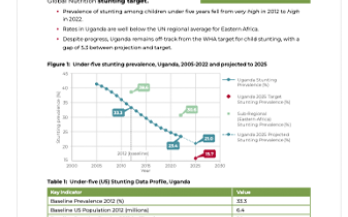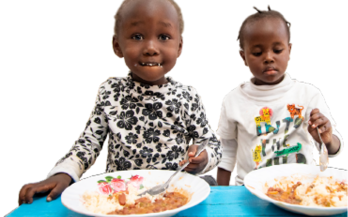

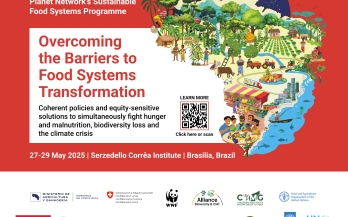
5th Global Conference of the One Planet Network Sustainable Food Systems Programme
- , Global
This global gathering will bring together governments, UNFSS national convenors, Rio Convention negotiators, civil society, private sector actors and more, to co-create practical, equitable, and integrated solutions across food, climate, biodiversity, and nutrition policies.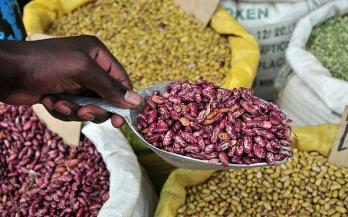
Sowing Success: The Journey of High Iron Beans in Tanzania
In Tanzania, 85- 90% of the land is cultivated by smallholder farmers majority of whom face challenges in getting access to quality seeds and assured markets for their produce, thus limiting their capabilities to produce quality produce and generate steady income. Currently, 57% of pregnant women in Tanzania are anemic. Additionally, according to the Tanzania Demographic and Health Survey 2015 (TDHS), 58% of children under the age of 5 years in the country were anemic.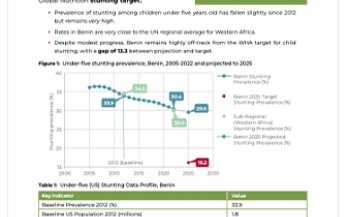
Benin Fact Sheet-WHA Global Nutrition Target
WHA Global Nutrition Stunting Target 2012-2025 Achieve a 40% reduction in the number of children under-5 who are stunted WHA Global Nutrition Overweight Target 2012-2025 Ensure that there is no increase in childhood overweight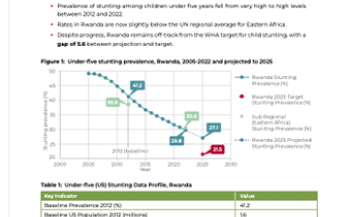
Rwanda Fact Sheet-WHA Global Nutrition Target
WHA Global Nutrition Stunting Target 2012-2025 Achieve a 40% reduction in the number of children under-5 who are stunted WHA Global Nutrition Overweight Target 2012-2025 Ensure that there is no increase in childhood overweight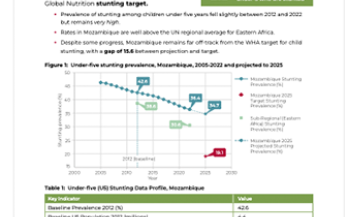
Mozambique Fact Sheet-WHA Global Nutrition Target
WHA Global Nutrition Stunting Target 2012-2025 Achieve a 40% reduction in the number of children under-5 who are stunted WHA Global Nutrition Overweight Target 2012-2025 Ensure that there is no increase in childhood overweight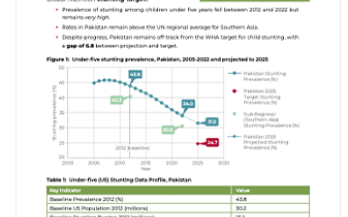
Pakistan Fact Sheet-WHA Global Nutrition Target
WHA Global Nutrition Stunting Target 2012-2025 Achieve a 40% reduction in the number of children under-5 who are stunted WHA Global Nutrition Overweight Target 2012-2025 Ensure that there is no increase in childhood overweight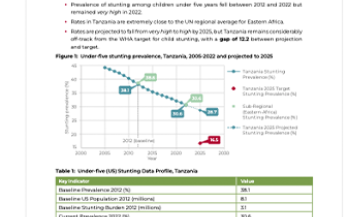
Tanzania Fact Sheet-WHA Global Nutrition Target
WHA Global Nutrition Stunting Target 2012-2025 Achieve a 40% reduction in the number of children under-5 who are stunted WHA Global Nutrition Overweight Target 2012-2025 Ensure that there is no increase in childhood overweight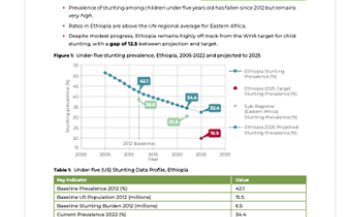
Ethiopia Fact Sheet-WHA Global Nutrition Target
WHA Global Nutrition Stunting Target 2012-2025 Achieve a 40% reduction in the number of children under-5 who are stunted WHA Global Nutrition Overweight Target 2012-2025 Ensure that there is no increase in childhood overweigh